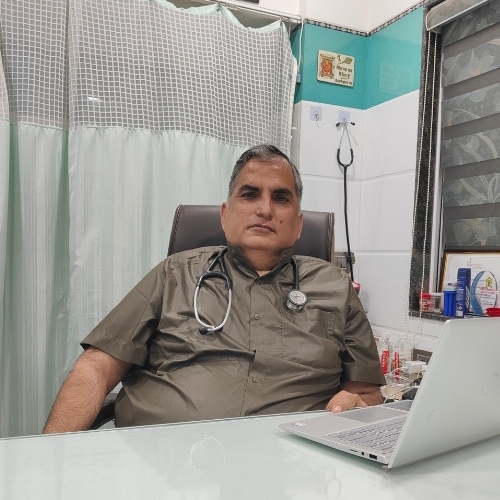
Our Diabetes Treatment Centre specializes in advanced care for type 1 and type 2 diabetes. Our expert endocrinologists provide personalized treatment plans, cutting-edge therapies, and comprehensive support to manage blood sugar and enhance quality of life.
- Personalized Treatment Plans – Tailored therapies to control diabetes effectively.
- Insulin Management – Customized insulin regimens for optimal glucose control.
- Medication Therapy – Advanced medications to stabilize blood sugar levels.
- Lifestyle Interventions – Guidance on diet and exercise for diabetes management.
- Complication Treatment – Targeted care to address diabetes-related health issues.
- Glucose Monitoring Support – Tools and education for accurate blood sugar tracking.
Effective diabetes treatment starts here—expert care for a healthier life.
Personalized Treatment Plans
Customized care for effective diabetes control
Why Personalized Plans Matter
Personalized diabetes treatment plans are designed to address individual needs, ensuring effective blood sugar control. By considering lifestyle, health status, and glucose patterns, these plans optimize outcomes and reduce complication risks.
Components of Treatment Plans
Plans include a mix of medications, insulin therapy, diet recommendations, and exercise routines. Endocrinologists assess factors like HbA1c levels and comorbidities to tailor interventions. Regular follow-ups ensure adjustments for sustained diabetes management.

Individualized Assessments
Assessments involve blood tests (e.g., HbA1c, fasting glucose) and health evaluations to create targeted plans. Factors like age, weight, and activity levels guide therapy choices, ensuring treatments align with patients’ daily lives.
Benefits of Customization
Personalized plans improve blood sugar stability, reduce the risk of complications like neuropathy, and enhance quality of life. Patients receive ongoing support to adapt plans as needed, ensuring long-term diabetes control.

Insulin Management
Tailored insulin therapy for optimal control
Overview of Insulin Management
Insulin management is crucial for type 1 diabetes and advanced type 2 cases. It involves precise insulin dosing to regulate blood sugar, preventing spikes or drops that can lead to serious complications.
Insulin Types and Delivery
Options include rapid-acting, long-acting, and mixed insulins, delivered via injections, pens, or pumps. Endocrinologists customize regimens based on glucose patterns, diet, and lifestyle for effective diabetes treatment.

Monitoring and Adjustments
Regular glucose monitoring with glucometers or continuous glucose monitors (CGMs) ensures insulin doses are effective. Adjustments are made based on activity, meals, or health changes to maintain stable blood sugar levels.
Long-Term Success
Effective insulin management reduces risks of hypoglycemia, hyperglycemia, and organ damage. Patients receive training and support to manage insulin confidently, improving health outcomes and quality of life.

Medication Therapy
Advanced drugs for blood sugar control
Role of Medication in Treatment
Medications are a cornerstone of diabetes treatment, particularly for type 2 diabetes. They help regulate blood sugar, improve insulin sensitivity, and reduce complication risks when lifestyle changes alone are insufficient.
Common Medications
Drugs like metformin, SGLT2 inhibitors, DPP-4 inhibitors, and sulfonylureas are commonly prescribed. Each targets different aspects of glucose regulation, tailored to the patient’s needs and health profile for effective diabetes management.

Monitoring and Side Effects
Regular check-ups monitor medication effectiveness and side effects, ensuring safe use. Blood tests track HbA1c and glucose levels, guiding dose adjustments to optimize treatment and prevent adverse reactions.
Benefits of Medication Therapy
Medications stabilize blood sugar, reduce cardiovascular risks, and improve long-term health. Combined with lifestyle changes, they provide a comprehensive approach to diabetes treatment, enhancing patient well-being.

Lifestyle Interventions
Diet and exercise for diabetes management
Importance of Lifestyle Changes
Lifestyle interventions are critical for effective diabetes treatment, complementing medications and insulin. A balanced diet and regular exercise improve blood sugar control and reduce complication risks.
Dietary Strategies
Patients are guided to adopt low-glycemic diets, focusing on fiber-rich foods, lean proteins, and healthy fats. Carbohydrate counting and meal timing help stabilize glucose levels, tailored to individual needs.

Exercise Recommendations
Regular physical activity, such as walking, strength training, or yoga, enhances insulin sensitivity and supports weight management. Exercise plans are customized to patients’ fitness levels and health conditions.
Long-Term Benefits
Lifestyle interventions improve blood sugar control, reduce medication dependency, and enhance overall health. Patients gain tools to maintain healthy habits, ensuring sustainable diabetes treatment success.

Complication Treatment
Managing diabetes-related health issues
Addressing Complications
Diabetes complications, such as neuropathy, retinopathy, and kidney disease, require targeted treatment to prevent progression. Early intervention and specialized care are key to maintaining health and quality of life.
Common Treatments
Treatments include medications for blood pressure or cholesterol, laser therapy for retinopathy, and dialysis for kidney issues. Regular screenings like eye and foot exams help detect problems early for timely intervention.

Multidisciplinary Care
A team of endocrinologists, ophthalmologists, and nephrologists collaborates to treat complications. Personalized plans address specific issues, combining medical therapies and lifestyle changes for comprehensive care.
Preventing Further Complications
Tight blood sugar control and regular monitoring reduce the risk of worsening complications. Patient education on symptom recognition and timely care ensures better outcomes, supporting long-term diabetes treatment success.




